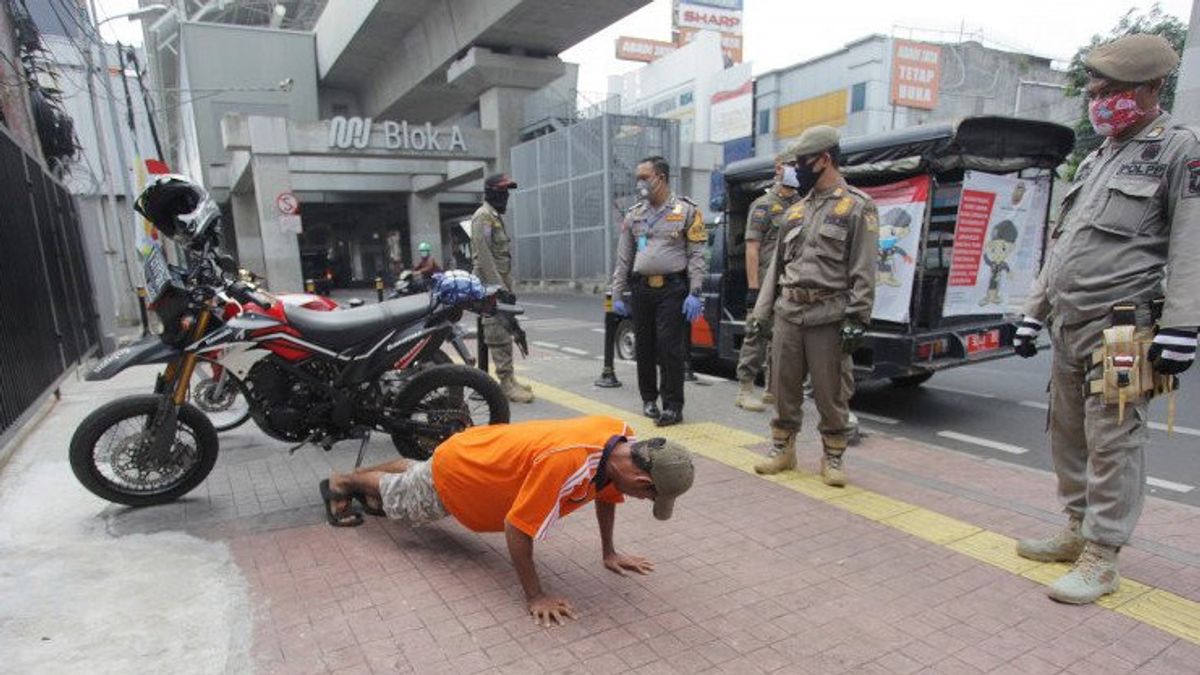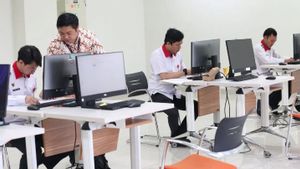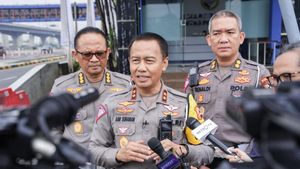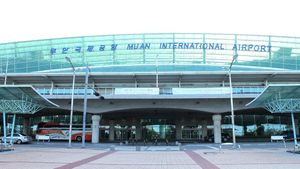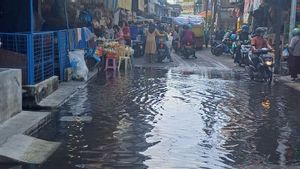JAKARTA - A resident of Tasikmalaya, Asep Lutfi (23) chose to be imprisoned instead of paying a fine of Rp. 5 million for his Emergency PPKM violation. Similar incidents occurred in other places. What happened? We're not doing well when people choose to live in prison, are we?
Asep's attitude was first conveyed by the Head of the Tasikmalaya City District Attorney's Office, Fajaruddin Yusuf. Asep is the owner of a coffee shop. Based on the decision of the Tasikmalaya District Court, "the person concerned was asked to pay a fine of IDR 5 million or imprisonment for three days," said Fajaruddin.
"... after being confirmed the person concerned chose to undergo confinement," he added.
The court then placed Asep in the Class II B Penitentiary (Lapas) Tasikmalaya. Although it is classified as a minor crime (tipiring), the Head of Prison Davi Bartian said Asep was placed in a cell with general prisoners. Asep's head was also shaved bald.
"Previously we received a report from the Tasikmalaya Kejari that there would be one prisoner inmate. According to law enforcement regulations, we are ready to accept him, of course, provided that he has been tested for antigen and will be placed in a cell with other inmates," said Davi.
Asep admitted that the decision was taken because he did not have money. Meanwhile, Asep's father, Agus Rahman (56) said that Asep's decision was not only a matter of money. Agus has agreed to pay the fine. But Asep still chose prison. Agus said he was proud of his son's attitude.
"I am proud of my son's decision. Even though in fact, if I pay a fine of Rp. 5 million, I can immediately provide it right now. But I support the desire of my son, who prefers imprisonment rather than paying the fine," said Agus in front of the prison gate, quoted by Kompas. com.
Other Emergency PPKM violatorsIn Subang City Square, a trial was held to judge a number of violators of the Emergency PPKM. Judges must pay the shortfall in fines that the violators cannot afford.
In Serang City, Banten, a toilet guard with the initials BH was sentenced to a fine of IDR 100,000 when he passed without a mask on Jalan Maulana Hasanuddin, Pasar Lama. BH chose one day prison.
Meanwhile, in Tangerang, Banten, a motorcyclist refused a mask raid by officers. He said his action to lower the mask to smoke was not a mistake. The motorist then chose prison.
Sociologists at Syarif Hidayatullah State Islamic University, Jakarta, see this incident as related to the governance of people's lives at the grassroots level, especially among micro and ultra-micro entrepreneurs.

"Sometimes they won't eat if they don't hold their stalls. Relying on social assistance is also not always hopeful... It is this pragmatic need that causes them to take the risk of staying open even though there is an emergency PPKM policy," Tantan told VOI.
What about their choice of imprisonment instead of paying a fine? This can be seen with Rational Choice Theory. This theory assumes that each individual has their own considerations in choosing an action or preference.
These preferences are based on their expectations or predictions on the benefits that can be obtained from that choice. "The perpetrators have calculated the profit and loss if they are imprisoned or pay a fine," said Tantan.
Even though the legal basis for Emergency PPKM is not clear
We're not okay. And the unusual choices that become rational as described above become even more ironic when we see that the legal basis of the Emergency PPKM itself is not clear. Researcher of the Institute for Criminal Justice Reform (ICJR), Maidina Rahmawati, instead highlighted the legal basis of these convictions.
Let's look at it in a structured way. Emergency PPKM, what is the legal basis? It's not clear, said Maidina. Emergency PPKM is based on the Instruction of the Minister of Home Affairs (Inmendagri) Number 15 of 2021 concerning the Enforcement of Restrictions on Emergency Community Activities for Corona Virus Disease 2019 in the Java and Bali Regions. This Minister of Home Affairs is valid from 3-20 July 2021.
This Inmendagri 15/2021 does not refer to a clear law. For example, Law Number 6 of 2018 concerning Health Quarantine which contains many important things as a reference for pandemic policies in Indonesia. Even when referring to Law 12/2011 concerning the Establishment of Legislative Rules, the Ministry of Home Affairs for Emergency PPKM does not have a clear position.
"Indeed Article 8 paragraph 2 (Law 12/2011) says 'other rules issued by the minister are also included as legislation. But there are conditions. He is regulated as an authority. So there must be a law that delegates this authority,' said Maidina.
The instrument for delegating that authority is in the Health Quarantine Law. But the law was not used. Ideally, the government should form a derivative rule in the form of a government regulation based on the Health Quarantine Law. The PP based on the Health Quarantine Law can accommodate the entire series of authorities for handling the pandemic.
"This is all in disarray. You should make rules, look at the existing rules as a legal system even in an emergency. It's not complicated. You don't have to make laws. Just make PP. Later, it can still be the authority of the central government," said Maidina.

What Maidina said is in line with the logic of handling the pandemic version of the epidemiologist from the Faculty of Public Health, University of Indonesia. According to Pandu, the government must immediately implement Law 6/2018 by starting from the formation of a PP based on Law 6/2018.
One of the most important points of Law 6/2018 is how the government guarantees the full livelihood of every community. This guarantee is the most logical way to stop people's mobility.
"Just look at that person who is still out of the house. Remember the beginning of PPKM (Emergency), when I went to the office, many people were found to be working. What's more sad is the people who are less involved," said Pandu.
"Emergency PPKM is not a Quarantine Law. I told you from the start to make government regulations based on the Quarantine Law. Without it, you can't," added Pandu.
Meanwhile, an epidemiologist from Griffith University, Dicky Budiman, sees Emergency PPKM or Micro PPKM as a shortcut taken by the government to avoid the obligation to fully meet the basic needs of the community. How about social assistance today?
It is not that. Law 6/2018 mandates more. Article 55 of the Law reads: During the Territorial Quarantine, the basic necessities of life for people and food for livestock in the quarantine area are the responsibility of the Central Government.

Then, Article 8 of Law 6/2018 confirms that everyone has the right to basic health services according to their medical needs, food, and other daily life needs during quarantine. The other necessities of life are clothing, toiletries, washing, and defecation.
After all human life is guaranteed. Only then can we think of sanctions. Law 6/2018 regulates that. Article 93 stipulates penalties for those who hinder the implementation of health quarantine so as to cause a public health emergency.
"... shall be sentenced to a maximum of one year in prison and a maximum fine of Rp. 100 million," it is written in the text of the law.
"Emergency PPKM was created because it was a shortcut. Because the law has many derivatives that haven't been completed. It's not finished yet. That really needs to be fixed. It should be done immediately. In the end, our regulation can't be used," said Dicky to VOI.
"Actually, the PSBB and the Territorial Quarantine have been the result of a long study. I was involved too. Only the burdensome thing is that there must be a government burden to cover the costs, the burden of life. , there are still many holes," he added.
*Read other information about COVID-19 or read other interesting articles from Diah Ayu Wardani, Ferdinand, Wardhany Tsa Tsia, and Yudhistira Mahabharata.
Other BERNASThe English, Chinese, Japanese, Arabic, and French versions are automatically generated by the AI. So there may still be inaccuracies in translating, please always see Indonesian as our main language. (system supported by DigitalSiber.id)
